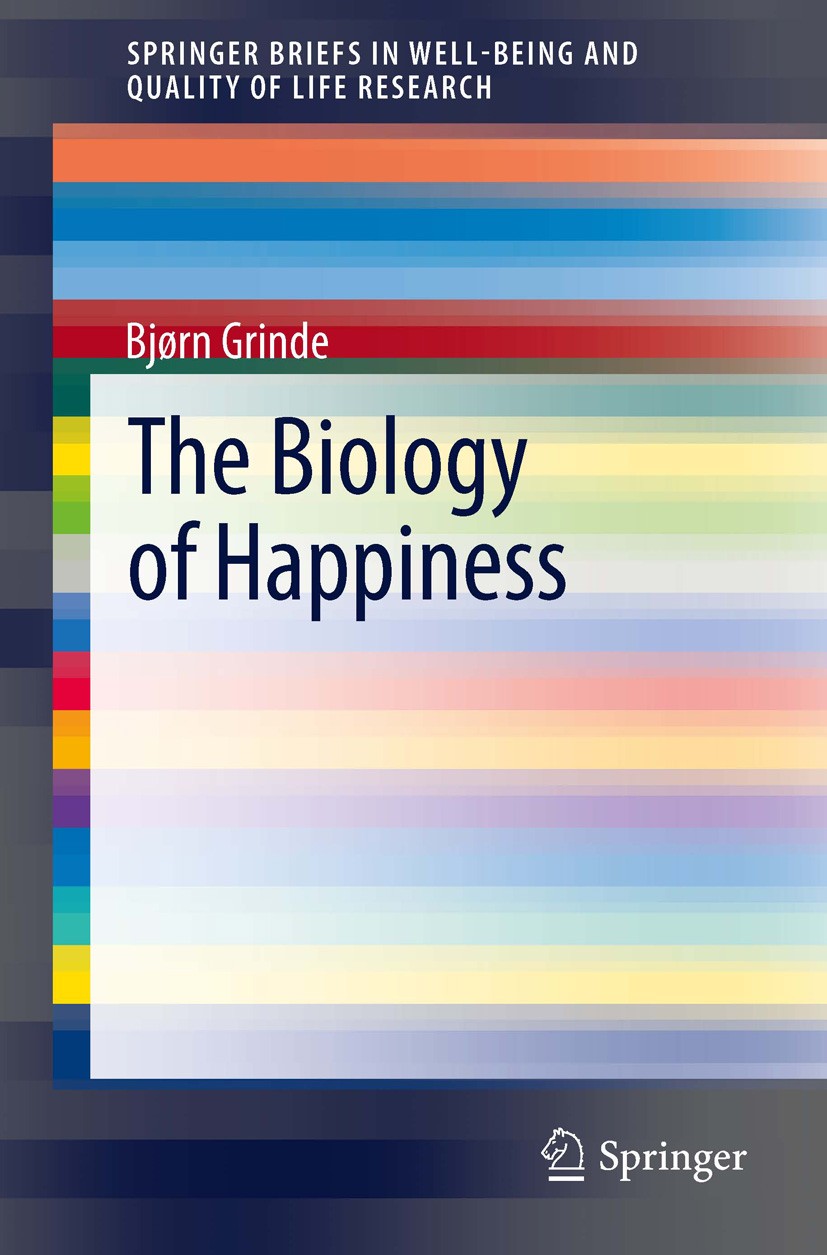| 书目名称 | The Biology of Happiness | | 编辑 | Bjørn Grinde | | 视频video | http://file.papertrans.cn/906/905184/905184.mp4 | | 概述 | Provides a unique angle on what positive feeling, or happiness, is about.Helps the individual improve his/her life.Suggests preventive options to reduce mental agony and suffering in society.Includes | | 丛书名称 | SpringerBriefs in Well-Being and Quality of Life Research | | 图书封面 |  | | 描述 | .The brief presents a model for happiness based on current knowledge in evolutionary biology and neurobiology. Briefly, the primary purpose of nervous systems is to direct an animal toward behaviour relevant for survival and procreation. In primitive animals actions are based on reflexes, while in humans the modules directing behaviour engage positive and negative affect (good and bad feelings), and they are swayed by cognitive processes. The reason why evolution opted for this strategy was the improved flexibility in response – i.e., we learn from previous experiences. The human capacity for happiness is an accidental consequence..An array of brain modules has evolved to care for various pursuits, but recent studies suggest that they converge on shared neural circuits designed to generate positive and negative mood. Happiness can be construed as the net output of the relevant modules. The briefs suggests a strategy for how to avoid having negative feelings (such as anxiety, depression and chronic pain) dominate the mind, and how to exercise positive feelings. In short, the book offers both a deeper understanding of what happiness is about, and a framework for improving well-being. | | 出版日期 | Book 2012 | | 关键词 | Darwinian Happiness; Deeper understanding of Happiness; Evolutionary Neurobiology; Happiness on an evol | | 版次 | 1 | | doi | https://doi.org/10.1007/978-94-007-4393-9 | | isbn_softcover | 978-94-007-4392-2 | | isbn_ebook | 978-94-007-4393-9Series ISSN 2211-7644 Series E-ISSN 2211-7652 | | issn_series | 2211-7644 | | copyright | The Author(s) 2012 |
The information of publication is updating

|
|
 |Archiver|手机版|小黑屋|
派博传思国际
( 京公网安备110108008328)
GMT+8, 2026-1-25 13:20
|Archiver|手机版|小黑屋|
派博传思国际
( 京公网安备110108008328)
GMT+8, 2026-1-25 13:20


